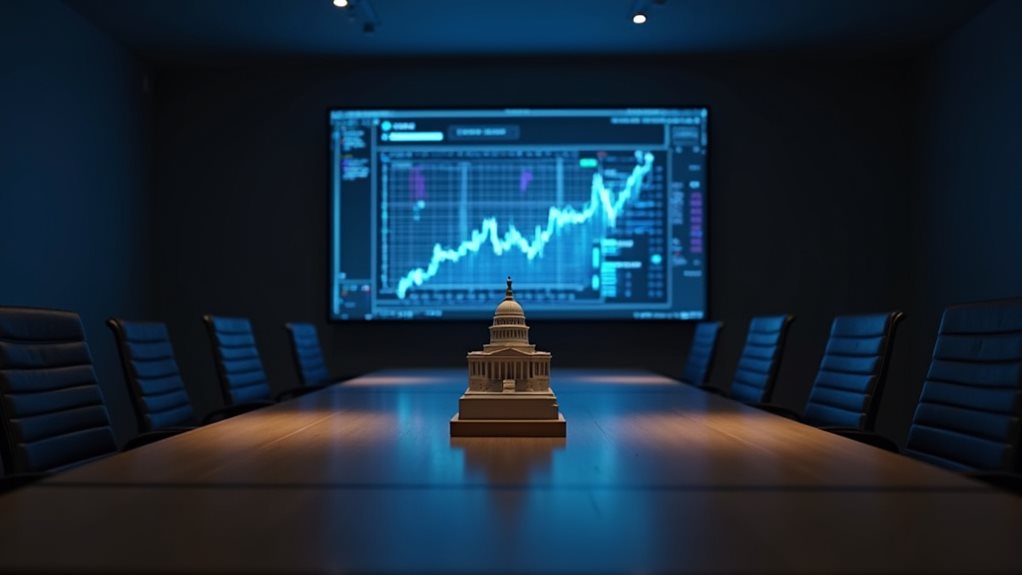The SEC’s Crypto Task Force means business. They’re meeting with companies like Ondo Finance to explore tokenizing U.S. securities, but they’re not just rubber-stamping anything. The task force takes a merit-neutral stance, examining the economic reality behind crypto offerings while welcoming industry feedback. With 28% of Americans now owning crypto, the stakes are high. Regulators are modernizing beyond 1930s frameworks, determined to balance innovation with investor protection. There’s more to this regulatory evolution than meets the eye.

While crypto markets continue their rollercoaster ride, the SEC’s specialized Crypto Task Force is diving headfirst into something that could actually matter: tokenizing U.S. securities. The task force has been quietly meeting with companies like Ondo Finance, working to figure out how traditional securities can get a digital makeover without breaking every rule in the regulatory handbook. The Task Force actively welcomes public stakeholder feedback to help shape these critical regulations. Safeguarding investor protection remains paramount as they explore the need for tailored disclosure requirements specific to crypto assets.
Let’s be real – this isn’t just another crypto hype train. The SEC’s team is dead serious about understanding the economic reality behind these offerings. They’re not just slapping “security” or “not security” labels on things anymore. They’re actually doing the work, examining everything from stablecoins to wrapped tokens, trying to create rules that make sense in the real world. With crypto ownership reaching 28% of Americans, the stakes for getting these regulations right have never been higher.
The task force isn’t playing favorites with technology either. They’re taking a merit-neutral approach, which basically means they don’t care what blockchain you’re using – they care about what you’re actually doing with it. This matters because it could finally give the industry some clear guidelines instead of the usual regulatory guessing game.
Finally, a regulatory approach that cares more about what you do than which blockchain you use.
These aren’t just closed-door meetings where regulators pat themselves on the back. The task force is organizing roundtables, bringing in industry experts, and actually listening to what people in the field have to say. They’re particularly interested in how companies might issue and sell tokenized versions of U.S. securities – you know, the boring but important stuff that keeps markets running.
The end game here is pretty clear: create a regulatory framework that isn’t stuck in the 1930s. The task force is looking at ways to revise traditional securities registration for the crypto age, making sure disclosure requirements actually make sense for digital assets. They’re even considering a regulatory sandbox for new financial products, which is about as progressive as the SEC gets.
Will it work? Who knows. But at least they’re tackling something concrete instead of just playing whack-a-mole with crypto violations.









